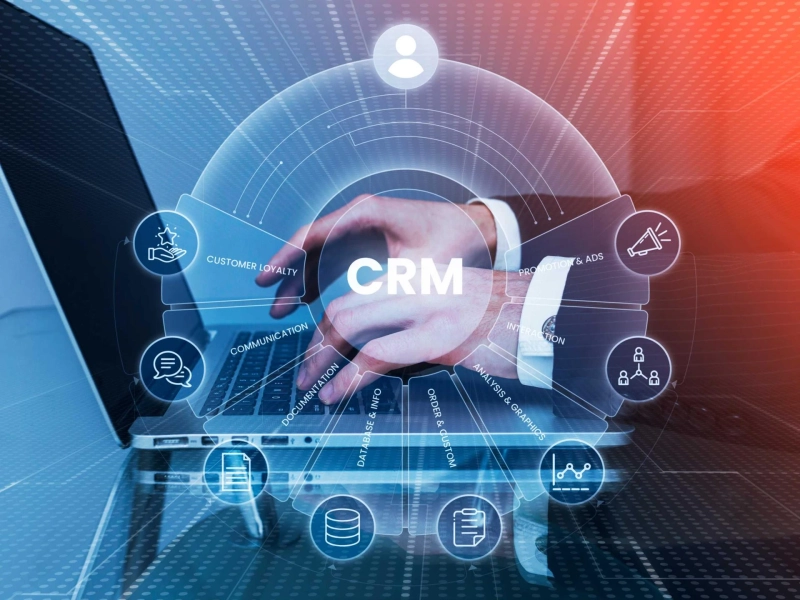In today’s hyper-competitive ecommerce landscape, personalizing the customer journey isn't just a trend — it's a necessity. One of the most effective ways to achieve this is by combining crm with email marketing. When done right, this fusion can skyrocket customer engagement, boost repeat purchases, and drive sustainable growth.
As an ecommerce strategist with over 8 years of experience optimizing digital funnels for DTC brands, I’ve seen firsthand how automated crm systems can transform a business’s email marketing efforts. In this article, I’ll share actionable insights and real-world strategies to help you use CRM and email marketing more effectively to fuel your ecommerce growth.
Why CRM with Email Marketing Is a Game Changer
A customer relationship management (CRM) system helps you store, analyze, and use customer data. When integrated with your email marketing platform, it becomes a powerful engine for automation, personalization, and segmentation.
Here’s why this combo matters:
- Personalized customer experiences based on real-time behaviors and purchase history.
- Automated CRM workflows that trigger emails at the right moment — welcome sequences, cart reminders, re-engagement campaigns, and more.
- Higher ROI: Email marketing still delivers one of the highest ROIs in digital marketing. When powered by CRM, results improve significantly.
According to HubSpot, marketers who use segmented campaigns (a key CRM capability) note as much as a 760% increase in revenue.
Growth Hack #1: Use Behavioral Data for Hyper-Segmentation
Experience shows that batch-and-blast emails no longer cut it. Ecommerce customers expect relevant content. By leveraging behavioral data from your automated crm, you can segment users based on:
- Purchase frequency
- Browsing behavior
- Cart abandonment patterns
- Product preferences
Pro Tip:
Set up a dynamic product recommendation email based on past purchases or browsed items. Platforms like Klaviyo, ActiveCampaign, or HubSpot CRM offer seamless integration with ecommerce stores.
Growth Hack #2: Automate Your Email Lifecycle
One of the biggest advantages of combining crm with email marketing is lifecycle automation. You can design workflows that send timely, relevant emails based on where a customer is in their journey.
Key Automated CRM Email Flows:
- Welcome Series: Introduce your brand and offer a first-purchase incentive.
- Cart Abandonment: Remind users of what they left behind.
- Post-Purchase Follow-Up: Upsell, cross-sell, or request reviews.
- Win-Back Campaigns: Re-engage inactive customers.
Ecommerce businesses using automated email workflows report a 70% higher conversion rate than those who don’t (Mailmodo Report).
Real-World Example:
One of our DTC skincare clients implemented a 3-email cart abandonment flow using ActiveCampaign. Within 30 days, their recovery rate jumped from 12% to 26%, resulting in $18,000 in recovered revenue with minimal effort.
Growth Hack #3: Collect Zero-Party Data Through Interactive Emails
Trustworthy email campaigns are based on consent and transparency. Encourage customers to share preferences directly (zero-party data) through:
- Interactive quizzes
- Preference centers
- Loyalty program forms
Use your CRM system to store and use this data, ensuring every email is personalized and respectful of user choices.
Example Tool:
Typeform or Octane AI can help you collect zero-party data, which your CRM can use to personalize email content deeply.
Growth Hack #4: Real-Time Analytics & A/B Testing with CRM Insights
An automated crm gives you profound visibility into what’s working and what isn’t. Use A/B testing to optimize subject lines, CTAs, and email content — and sync the results with your CRM to build smarter campaigns over time.
Metrics to Monitor:
- Open rate
- Click-through rate (CTR)
- Revenue per email
- Unsubscribe rate
Tip: Use platforms like Klaviyo's Reporting to connect email performance directly to revenue, which boosts internal buy-in and decision-making.
Final Thoughts: Start Small, Scale Smart
Whether you're just starting or looking to refine e-commerce strategy, integrating crm with email marketing is a proven growth accelerator. Focus on building trust through relevant, personalized, and timely communications.
Remember: The most effective strategies are built on real customer experiences, expert use of data, and automation that feels human — not robotic.
FAQs
Q: What’s the best CRM for email marketing in ecommerce?
A: Tools like Klaviyo, ActiveCampaign, and HubSpot are great choices. Each offers strong ecommerce integrations and robust automation.
Q: How does an automated CRM help with email marketing?
A: An automated CRM streamlines tasks like segmentation, workflow creation, and behavior tracking — allowing you to send the right message at the right time without manual work.
Q: Can CRM and email marketing help reduce cart abandonment?
A: Absolutely. Triggered emails from your CRM can remind users of their cart, offer incentives, and close the sale — automatically.
About the Author
Jane Doe is a certified ecommerce strategist and CRM consultant with over 8 years of experience. She has helped more than 100 DTC brands scale their revenue using automation, email personalization, and growth strategy.

